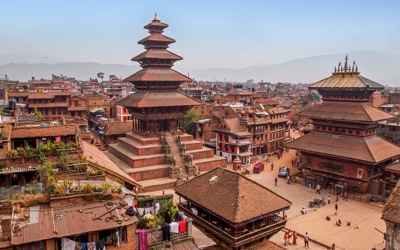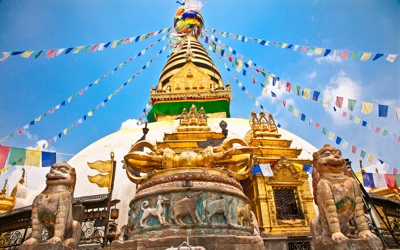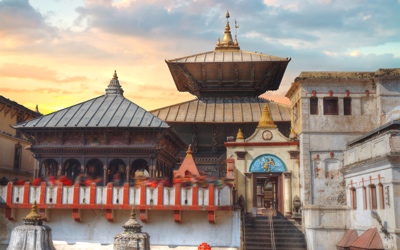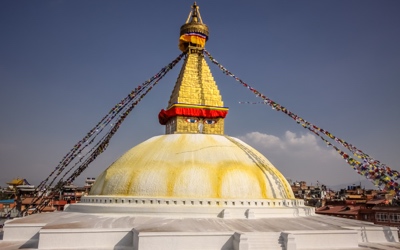
KAthmandu - Half day Sightseeing of Boudhanath Stupa and Pashupatinath Temple
5 h
Half Day
Instant confirmation
About this activity
Today morning you will proceed for half day tour of Boudhanath Stupa and Pashupatinath Temple.
• Pashupatinath: Located on the banks of Bagmati River is the sacred Pashupati Temple. Pashupati is a manifestation of Shiva and means ‘The Lord of Animal’. This temple has been a UNESCO World Heritage Site since 1979. The temple premise consists of temples, ashrams, idols, and inscription added over centuries. The temple is the ultimate destination for devotees during the Maha Shivaratri Festival, where a crowd of thousands gathers to pay homage to Lord Shiva. The main temple within the complex is of pagoda shape with golden roof and silver doors on all the four sides of the temple. Inside the temple is a Shiva linga with four faces of Shiva, with four different names and significance. Pashupati area is regarded as one of the most important places of pilgrimages for Hindus. Thousands of devotees from all around the world come to Pashupatinath every day. The temple is barred to non-Hindus, but one can get a good view of the temple from the opposite bank of the river. Every evening aarti (light offering) to Lord Shiva is performed which can be observed from across the river. The view of Arya Ghat (cremation ground only for Hindu) is also possible from the spot.
•
• Boudhanath: On the outskirt of Kathmandu lies one of the largest spherical stupas in Nepal. This ancient stupa of Boudhanath, on top of a massive mandala, probably is one of the largest in the world. There are over 50 monasteries around it and it was included on the UNESCO World Heritage Site in 1979. It is built on the ages old trade route from Tibet to enter the Kathmandu Valley. Under the wise eyes of Buddha gazing out from the gilded central tower seems to be watching over thousands of pilgrims gather daily to make a kora (ritual circumnavigation) of the dome. In the evening the whole place lights up with butter lamps and the wafting smell of sage gives a calming effect. The stupa is surrounded by building and monasteries. The plaza surrounding the stupa is open for people of all religion. Tibetan monks, elderly, along with other devotees can be seen spinning prayer wheels, chanting mantras, or just strolling in silence around the monument. The Stupa was damaged during the earthquake but has already been reconstructed and opens for tourists from November 2016.
Read more
Show less
• Pashupatinath: Located on the banks of Bagmati River is the sacred Pashupati Temple. Pashupati is a manifestation of Shiva and means ‘The Lord of Animal’. This temple has been a UNESCO World Heritage Site since 1979. The temple premise consists of temples, ashrams, idols, and inscription added over centuries. The temple is the ultimate destination for devotees during the Maha Shivaratri Festival, where a crowd of thousands gathers to pay homage to Lord Shiva. The main temple within the complex is of pagoda shape with golden roof and silver doors on all the four sides of the temple. Inside the temple is a Shiva linga with four faces of Shiva, with four different names and significance. Pashupati area is regarded as one of the most important places of pilgrimages for Hindus. Thousands of devotees from all around the world come to Pashupatinath every day. The temple is barred to non-Hindus, but one can get a good view of the temple from the opposite bank of the river. Every evening aarti (light offering) to Lord Shiva is performed which can be observed from across the river. The view of Arya Ghat (cremation ground only for Hindu) is also possible from the spot.
•
• Boudhanath: On the outskirt of Kathmandu lies one of the largest spherical stupas in Nepal. This ancient stupa of Boudhanath, on top of a massive mandala, probably is one of the largest in the world. There are over 50 monasteries around it and it was included on the UNESCO World Heritage Site in 1979. It is built on the ages old trade route from Tibet to enter the Kathmandu Valley. Under the wise eyes of Buddha gazing out from the gilded central tower seems to be watching over thousands of pilgrims gather daily to make a kora (ritual circumnavigation) of the dome. In the evening the whole place lights up with butter lamps and the wafting smell of sage gives a calming effect. The stupa is surrounded by building and monasteries. The plaza surrounding the stupa is open for people of all religion. Tibetan monks, elderly, along with other devotees can be seen spinning prayer wheels, chanting mantras, or just strolling in silence around the monument. The Stupa was damaged during the earthquake but has already been reconstructed and opens for tourists from November 2016.
Included
- Professional guide
- Hotel pickup and drop-off
- Private tour
- Transport by air-condition vehicle
- All applicable taxes
Not included
- Food and drinks
- Gratuities
Additional
- Confirmation will be received at time of booking
- Not wheelchair accessible
- This is a private tour/activity. Only your group will participate
Features
Tourism
95%
Cultural
70%
Aquatic
15%
Collections
This experience is part of these collections
You may also like









 See all 37 Collections
See all 37 Collections
Click to discover other experiences
See all
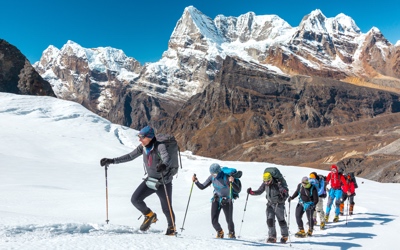
Collections
Hiking
82 Activities
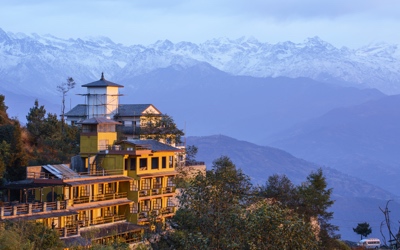
Collections
Nagarkot Trek
73 Activities
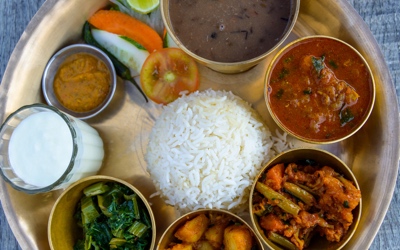
Collections
Food & Cooking
16 Activities
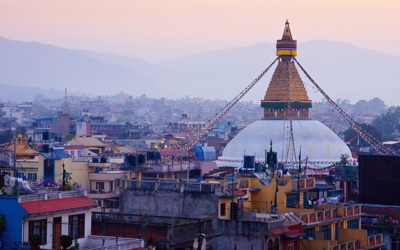
Collections
Kathmandu Valley
65 Activities
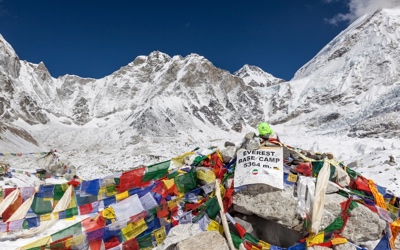
Collections
Everest Base Camp Trek
151 Activities
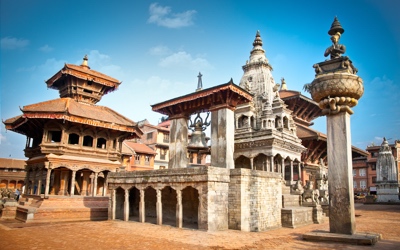
Collections
Bhaktapur
39 Activities
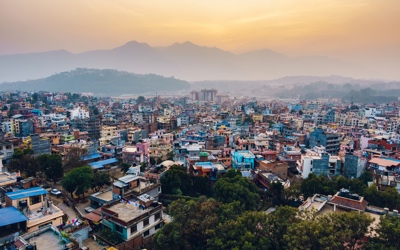
Collections
Other trips
96 Activities
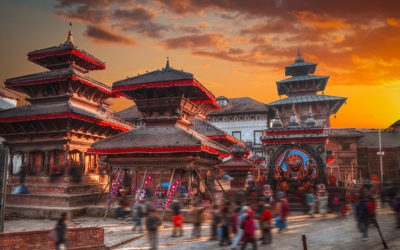
Collections
Patan Durbar
25 Activities
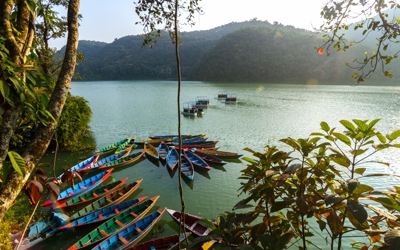
Collections
Pokhara Tour
46 Activities
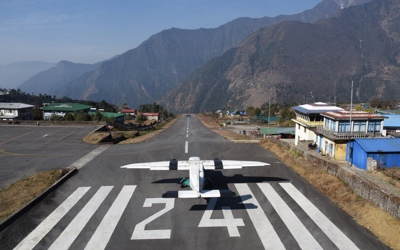
Collections
Everest Flight
24 Activities

